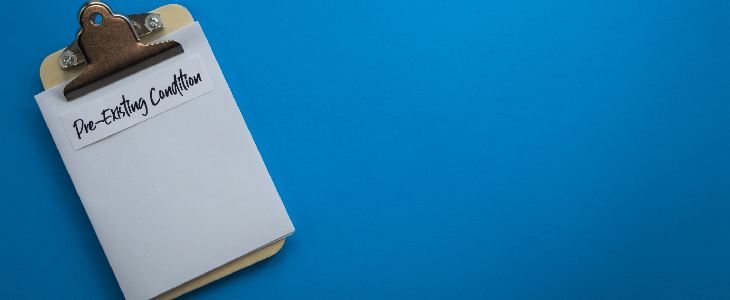You were injured in an accident in New Jersey that was not your fault. You expect to receive compensation for your damages from the person who caused your injuries. However, an insurance adjuster tells you that your claim is being denied because you have a pre-existing health condition or your claim is worth less because of the condition. Could that be true?
Don’t trust the insurance adjuster or another party that tries to tell you a pre-existing condition prevents you from filing a personal injury case. Instead, get the facts about pre-existing conditions and personal injury cases from a New Jersey personal injury lawyer.
You Are Entitled to Compensation When Someone Causes Your Injury in New Jersey
Under New Jersey personal injury laws, you are entitled to compensation for your damages if another party causes your injuries. You can receive economic damages for your financial losses, such as lost wages, property damages, and medical bills. You can also receive compensation for your non-economic damages, including emotional distress, pain, and suffering.
A pre-existing condition does not bar an accident victim from receiving compensation for damages. However, your pre-existing condition can affect your personal injury case and the compensation you receive.
How Does My Pre-Existing Condition Impact My Personal Injury Claim in New Jersey?
If you have a pre-existing condition, it could impact the compensation you receive for a personal injury claim in New Jersey. However, a pre-existing condition does not prevent you from recovering compensation for injuries or damages a person causes. That is true even if the pre-existing condition may have increased your risk of being injured.
The eggshell skull rule is a legal doctrine that protects an injured party from being offered less compensation than they deserve because they had a pre-existing condition. The rule states that the at-fault party is liable for the full damages caused by their negligence, even if the victim had a condition that could make them more prone to injury. In other words, the at-fault party is responsible for any new injuries not associated with the pre-existing condition and any worsening of the pre-existing condition.
What Do You Need to Prove to Collect Compensation for a Personal Injury Claim Involving a Pre-Existing Condition?
First, you must prove that the at-fault party caused your injury. For example, a negligent driver ran a red light and collided with your vehicle when you had the right of way. Your medical records help connect your recent injuries to the car accident. However, the at-fault party may argue that a pre-existing condition caused the paralysis you claim.
Therefore, you would need medical evidence establishing the severity of your back injury before the car crash. For instance, you could work before the crash and only have a 10% impairment rating. Therefore, the back injury did not limit your activities very much.
However, after the car crash, you sustained a spinal cord injury that resulted in partial paralysis of your right leg and arm. The back injury could have made you more vulnerable to another injury, but your condition worsened because of the car accident.
The at-fault party is not liable for any damages from the prior injury. However, they could be liable for the difference between your pre-existing medical condition and your current impairment or condition.
Proving that an injury or accident caused a pre-existing condition to worsen can be challenging. Likewise, proving your new injury is not connected to a prior injury is also difficult. To protect your rights, obtaining legal advice as soon as possible is crucial if you have a prior or pre-existing condition.
Learn More About Pre-Existing Conditions and Your Personal Injury Claim
Call Nagel Rice LLP before you accept a settlement offer that could be worth far less than the value of your personal injury claim. Insurance companies use pre-existing conditions and other issues to unjustly undervalue claims. Let our New Jersey personal injury lawyers review your case to tell you how much your claim is worth.

